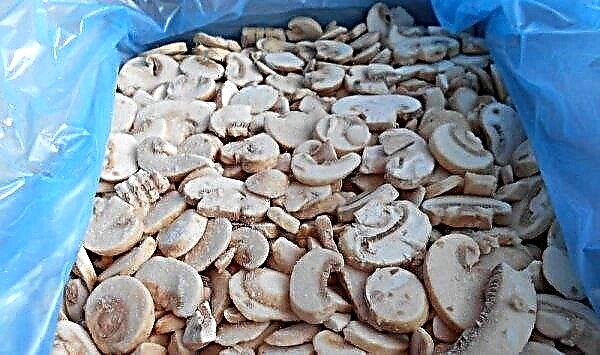In the treatment of genitourinary organs as an additional remedy, traditional medicine is often used. One of such means is dill, or rather its seeds. What useful properties this product has and how to use it correctly, read below.
Useful properties of dill
Dill seed contains essential oils rich in vitamins and minerals necessary to strengthen and restore the functionality of the human body.
Did you know? In ancient Greece, the winners of the competitions were awarded not only with laurel wreaths, but also woven from dill branches.
- Useful properties of this product allow you to:
- effectively eliminate the inflammatory process in the body, due to the presence of antioxidants in the form of ascorbic acid and B vitamins;
- accelerate regeneration at the cellular level;
- relieve swelling due to the diuretic effect;
- increase the digestibility of substances by the body;
- improve the digestive system and remove toxins;
- relieve spasms;
- improve the central nervous system, removing the effects of stress;
- accelerate the removal of sputum from the respiratory system;
- improve the condition of blood vessels;
- restore the endocrine system.

Are dill seeds diuretic?
Dill seeds are a mild urinary agent. To achieve a diuretic effect, they must be taken strictly at the indicated dosage for 3 weeks. Regular use can reduce swelling and remove excess urine from the body, which has a beneficial effect on the state of the vascular network and the work of the heart muscle.
Important! Exceeding the dose and inappropriate use of dill decoctions can lead to a decrease in libido in men due to a sedative effect.
How to brew a medicine: recipes
The maximum benefit of the plant can be obtained only if used correctly. Dill seeds can be purchased at the pharmacy or prepared independently. With self-harvesting, you need to collect seeds in July-August. After collection, they are laid out in a thin layer on a sheet of paper and dried in the sun. Store in canvas bags or paper bags in a dark, dry room at a temperature of + 20 ° C and a relative humidity of 50%.
Decoction
To prepare a decoction you will need:
- 3 tbsp. l dill grains;
- 300 ml of boiling water.

Infusion
Infusions will be effective in the presence of infection with therapy that does not involve taking antibiotics.
To prepare the tincture you will need:
- 5 tbsp. seed;
- 0.5 l of vodka.
Seeds need to be crushed to a powder state. Then the raw material is placed in a transparent glass vessel and filled with vodka. The term of insisting is 3 weeks. The tool is taken 10 minutes before a meal for 1 tbsp. l
Important! You need to store dill tincture on the refrigerator door or in the basement at temperatures up to +10° C.
Dill seed with honey
A more effective decoction of dill seeds can be made by adding flowers and branches of St. John's wort, as well as honey.
To prepare a decoction you will need:
- 2 tbsp. dill grains;
- 2 branches of St. John's wort;
- 60 g of honey;
- 1 liter of water.
Cooking sequence:
- Grind the raw materials and put them in an enameled bowl.
- Pour boiling water and add honey.
- Install in a water bath and simmer for 2 hours.
- Strain the resulting substance and take 0.5 l per day, dividing into several doses.

How to drink
The course of treatment with broth is 3 months. The drug is taken daily for 3 weeks, then take a break for 2 weeks and so 3 courses. During this period, sexual and urinary functions are restored, swelling goes away and the body's overall resistance to infections increases. A decoction without honey can also be used for sitz baths or hygiene procedures. If the application is combined inside and out, the course of treatment is 2 months.
The course of treatment with tincture is 3 weeks. Take it 3 times a day.
Important! Tincture is contraindicated for people who have gastrointestinal diseases, accompanied by high acidity, and those who are on treatment for alcohol dependence.
Side effects and contraindications
The tool is attractive in that it can be used in complex treatment, combining with almost any medication. It has almost no contraindications and rarely provokes side effects.
A contraindication to the use of dill broth is a tendency to hypotension and individual intolerance to dill.
- Among the side effects when the dosage is exceeded, the following can be observed:
- lethargy;
- drowsiness;
- pressure reduction;
- stool disorders;
- flatulence.













